

| Sr. No. | Products | IS Standard | Group | Remark |
|---|---|---|---|---|
| 1 |  2 Wire Telephone Equipment |
SCS | A | 1. TEC stands for "Telecommunication Engineering Center" and is an Indian government organization responsible for setting standards and regulations for telecommunication equipment in India. 2. If you have a 2-wire telephone equipment that you intend to use in India, you may need to obtain TEC certification to ensure that it complies with the technical standards set by TEC. TEC certification is mandatory for all telecom equipment manufacturers and importers in India. 3. To obtain TEC certification for your 2-wire telephone equipment, you will need to submit your product to a TEC-approved testing laboratory for testing and evaluation. The testing will assess the equipment's compliance with the relevant technical standards set by TEC. 4. Once your product has been tested and found to be compliant with TEC standards, you can apply for TEC certification by submitting the test reports and other necessary documents to TEC. If your application is approved, you will be issued a TEC certificate, which will allow you to sell and use your 2-wire telephone equipment in India. 5. It's worth noting that the TEC certification process can be complex and time-consuming. If you're unsure about the requirements or need help with the certification process, you may want to consult with a professional certification agency or consultant who specializes in TEC certification. |
| 2 |  Conferencing Equipment |
SCS | A | TEC (Telecommunication Engineering Center) is responsible for setting standards and regulations for telecommunication equipment in India. If you want to sell or use conferencing equipment in India, you may need to obtain TEC certification to ensure that your product meets the technical standards set by TEC. The TEC certification process for conferencing equipment is similar to that for other telecommunication equipment. You will need to submit your product to a TEC-approved testing laboratory for testing and evaluation. The testing will assess the equipment's compliance with the relevant technical standards set by TEC. The technical standards for conferencing equipment may include requirements related to the quality of audio and video output, data security, interoperability with other devices, and other features. The specific requirements will depend on the type of conferencing equipment and its intended use. Once your product has been tested and found to be compliant with TEC standards, you can apply for TEC certification by submitting the test reports and other necessary documents to TEC. If your application is approved, you will be issued a TEC certificate, which will allow you to sell and use your conferencing equipment in India. |
| 3 | 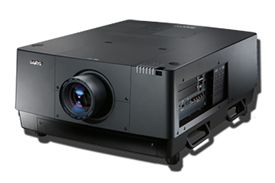 Conferencing and Presentation Equipment |
GCS | B | If you want to sell or use conferencing and presentation equipment in India, you may need to obtain TEC (Telecommunication Engineering Center) certification to ensure that your product meets the technical standards set by TEC. Conferencing and presentation equipment can include video conferencing systems, audio conferencing systems, projectors, displays, and other related equipment. The technical standards for these types of equipment may include requirements related to audio and video quality, data security, interoperability with other devices, and other features. The TEC certification process for conferencing and presentation equipment is similar to that for other telecommunication equipment. You will need to submit your product to a TEC-approved testing laboratory for testing and evaluation. The testing will assess the equipment's compliance with the relevant technical standards set by TEC. Once your product has been tested and found to be compliant with TEC standards, you can apply for TEC certification by submitting the test reports and other necessary documents to TEC. If your application is approved, you will be issued a TEC certificate, which will allow you to sell and use your conferencing and presentation equipment in India. |
| 4 | 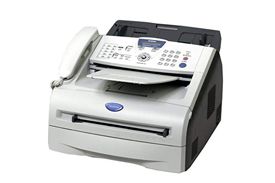 Group 3 Fax Machine |
SCS | A | If you want to sell or use a Group 3 fax machine in India, you may need to obtain TEC (Telecommunication Engineering Center) certification to ensure that your product meets the technical standards set by TEC. Group 3 fax machines are the most common type of fax machines and are widely used for sending and receiving faxes. The technical standards for Group 3 fax machines may include requirements related to data transmission rates, error correction, signal quality, and other features. The TEC certification process for Group 3 fax machines involves testing your product at a TEC-approved testing laboratory to assess its compliance with the relevant technical standards set by TEC. The testing will evaluate the data transmission rates, error correction capabilities, and other features of your fax machine to ensure that it meets the required standards. Once your product has been tested and found to be compliant with TEC standards, you can apply for TEC certification by submitting the test reports and other necessary documents to TEC. If your application is approved, you will be issued a TEC certificate, which will allow you to sell and use your Group 3 fax machine in India. |
| 5 | 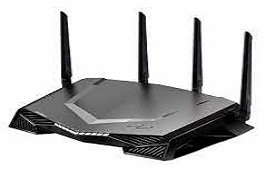 Data Modem (Connectable on 2-wire Analog Line) |
SCS | A | To obtain TEC certification for a data modem connectable on a 2-wire analog line in India, you would need to follow these general steps: 1. Ensure that your data modem meets the technical requirements set by TEC (Telecommunication Engineering Centre). You can find the technical requirements for different products on the TEC website. 2. Prepare the necessary documents and forms for the certification process. This includes a duly filled application form, technical specifications, test reports, user manual, and other relevant documents. 3. Submit the application along with the required documents to TEC. You can either submit it online through the TEC portal or in person at their office. 4. TEC will review the application and documents to ensure that they comply with the technical requirements. They may also conduct tests to verify the product's compliance. 5. If your product meets the technical requirements, TEC will issue a certificate of conformity. This certificate confirms that your product has been tested and found to comply with the relevant standards. 6. You can then use the certificate of conformity to market and sell your product in India. Note that the TEC certification process may take several weeks or months to complete, depending on the complexity of the product and the workload at TEC. It's important to plan accordingly and ensure that you have all the necessary documents and information before submitting your application. |
| 6 |  Point of Sale Devices (POS) |
GCS | A | TEC (Telecommunication Engineering Center) certification is a mandatory requirement for all telecom equipment that is to be sold or used in India. This includes Point of Sale (POS) devices used for electronic payment transactions. The TEC certification process involves testing the equipment to ensure that it meets the technical and safety standards set by the Indian government. The testing process includes various parameters such as Electromagnetic Compatibility (EMC), Safety, and Environmental requirements. It is important to note that TEC certification is a legal requirement for all telecom equipment sold or used in India, and non-compliance can result in penalties or even legal action. Therefore, it is essential for manufacturers and importers of POS devices to obtain TEC certification before selling or using their products in India. TEC (Telecommunication Engineering Center) certification is mandatory for all telecommunications equipment, including cordless telephones, that are sold or used in India. The certification ensures that the equipment meets the technical and safety standards set by the Indian government.. The TEC certification process involves multiple stages of testing and certification, including type approval, mandatory testing, and certification, which ensure that the equipment meets the specified technical requirements. Once the equipment has been certified, the manufacturer or importer can begin selling it in the Indian market. It is important to note that TEC certification is a legal requirement for all telecommunications equipment sold or used in India, including cordless telephones. Non-compliance with the TEC certification requirements can lead to penalties or legal action, so it is essential for manufacturers and importers of cordless telephones to obtain TEC certification before selling or using their products in India. |
| 7 | 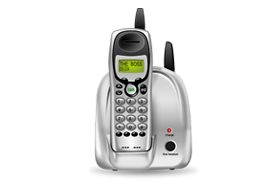 Cordless Telephone |
SCS | A | TEC (Telecommunication Engineering Center) certification is mandatory for all telecommunications equipment, including cordless telephones, that are sold or used in India. The certification ensures that the equipment meets the technical and safety standards set by the Indian government. To obtain TEC certification for cordless telephones, the manufacturer or importer of the equipment must submit an application to the TEC along with all the necessary documents and information related to the product. The TEC will then conduct testing on the device to verify its compliance with the relevant standards, including radio frequency (RF) emission levels, safety, and environmental requirements. The TEC certification process involves multiple stages of testing and certification, including type approval, mandatory testing, and certification, which ensure that the equipment meets the specified technical requirements. Once the equipment has been certified, the manufacturer or importer can begin selling it in the Indian market. It is important to note that TEC certification is a legal requirement for all telecommunications equipment sold or used in India, including cordless telephones. Non-compliance with the TEC certification requirements can lead to penalties or legal action, so it is essential for manufacturers and importers of cordless telephones to obtain TEC certification before selling or using their products in India. |
| 8 | 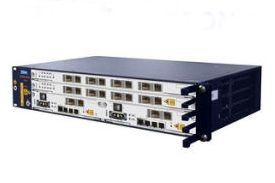 PON Family of Broadband Equipment |
SCS | B | TEC stands for Telecommunication Engineering Centre, which is a nodal agency of the Indian government responsible for setting standards and providing technical support to the telecommunications industry in India. If you are looking to obtain TEC certification for PON (Passive Optical Network) equipment, you will need to comply with the relevant TEC standards and guidelines. The TEC has a set of standards and guidelines that cover various aspects of PON technology, including optical transmission parameters, testing requirements, safety regulations, and performance criteria. These standards are designed to ensure that PON equipment meets the required technical specifications and is safe for use in Indian telecommunications networks. To obtain TEC certification for your PON equipment, you will need to submit your product to the TEC for testing and evaluation. The TEC will review your equipment and test it to ensure that it meets the relevant technical standards. Once your equipment has been certified, you will be able to market and sell it in India. To start the certification process, you can contact the TEC and request information on the application procedure, required documentation, and testing requirements. It is essential to ensure that your equipment complies with the relevant TEC standards and guidelines to avoid any delays or rejection during the certification process. |
| 9 | 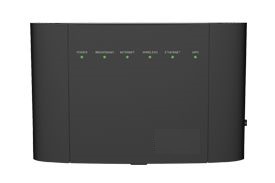 Media Converter |
GCS | B | TEC (Telecommunication Engineering Centre) certification is mandatory for any telecom equipment that is to be sold or used in India, including media converters. Media converters are devices that convert signals between different types of media, such as fiber optic cables and copper cables. To obtain TEC certification for your media converter, you will need to comply with the relevant TEC standards and guidelines. These standards cover various aspects of media converter technology, including optical transmission parameters, testing requirements, safety regulations, and performance criteria. During the certification process, it is essential to ensure that your media converter complies with the relevant TEC standards and guidelines to avoid any delays or rejection. Once your media converter has been certified, you will be able to market and sell it in India. TEC certification is mandatory for any telecom equipment sold or used in India. Therefore, obtaining TEC certification for your media converter is crucial if you intend to sell or use it in the Indian market. |
| 10 | 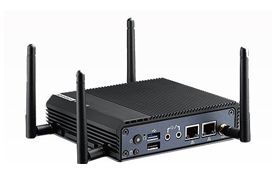 IoT Gateway with Cellular Connectivity |
GCS | B | If you are manufacturing or importing an IOT (Internet of Things) gateway with cellular connectivity to sell or use in India, you need to obtain TEC (Telecommunication Engineering Centre) certification. TEC certification is mandatory for all telecom equipment, including IOT gateways with cellular connectivity, sold or used in India. To obtain TEC certification for your IOT gateway with cellular connectivity, you will need to ensure that your device complies with the relevant TEC standards and guidelines. These standards cover various aspects of IOT gateway technology, including cellular connectivity, testing requirements, safety regulations, and performance criteria. You will need to submit your IOT gateway to a TEC-accredited laboratory for testing and evaluation. The laboratory will verify whether your IOT gateway with cellular connectivity meets the required technical specifications and is safe for use in Indian telecommunications networks. The testing process may take several weeks or months, depending on the complexity of your device. During the certification process, it is essential to ensure that your IOT gateway complies with the relevant TEC standards and guidelines to avoid any delays or rejection. Once your IOT gateway with cellular connectivity has been certified, you will be able to market and sell it in India. To start the TEC certification process, you can contact the TEC and request information on the application procedure, required documentation, and testing requirements. It is important to note that TEC certification is mandatory for all telecom equipment sold or used in India, including IOT gateways with cellular connectivity. Therefore, obtaining TEC certification for your IOT gateway is crucial if you intend to sell or use it in the Indian market. |
| 11 | 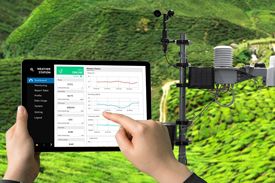 End Point Device for Environmental Monitoring |
GCS | B | TEC (Telecommunication Engineering Center) is an authorized agency in India that provides technical consultancy and testing services in the field of telecommunications. TEC certification is a mandatory certification required by the Indian government for telecommunications equipment to ensure that it meets the technical standards set by the government. When it comes to end point devices for environmental monitoring, TEC certification is necessary to ensure that the devices meet the necessary technical regulations and standards to operate in India. This certification is particularly important for devices that are used for measuring environmental factors such as air quality, water quality, radiation levels, etc. To obtain TEC certification for an end point device for environmental monitoring, the manufacturer must submit the device for testing at a TEC-approved laboratory. The device will be tested for compliance with technical parameters such as power consumption, signal strength, frequency range, and other relevant specifications. Once the device has passed all the necessary tests, the manufacturer will receive a TEC certificate, which indicates that the device is compliant with the technical standards set by the Indian government. This certification is valid for a period of five years, after which the manufacturer must renew the certification to continue selling the device in India. In summary, TEC certification is a mandatory certification required for end point devices used for environmental monitoring in India to ensure that the devices meet the necessary technical standards set by the government. |
| 12 |  Feedback Devices |
GCS | B | The Telecom Engineering Center (TEC) is an organization in India that provides testing and certification services for telecom products and equipment. While TEC primarily focuses on telecommunications equipment, including network infrastructure, devices, and systems, they may also provide certification services for feedback devices used in the telecom industry. However, it's important to note that I don't have access to the latest information or updates beyond my September 2021 knowledge cutoff. Therefore, I recommend reaching out directly to the Telecom Engineering Center (TEC) or visiting their official website to obtain the most up-to-date and accurate information regarding certification requirements for feedback devices in the telecom industry. They will be able to provide you with specific details about the certification process, eligibility criteria, and any applicable standards or regulations. |
| 13 | Tracking Device |
GCS | B | The Telecom Engineering Center (TEC) in India is primarily responsible for providing testing and certification services for telecommunications equipment. While they may not have a specific certification program for tracking devices, they do offer certification services for various types of telecom equipment. When it comes to tracking devices, certifications and regulatory compliance requirements may vary depending on the specific application and country. For example, if you are referring to tracking devices used in the context of GPS tracking or asset tracking, there may be industry-specific certifications or standards to adhere to, such as CE certification in Europe or FCC certification in the United States. It's recommended to consult with the relevant regulatory bodies or certification agencies in your country or region to understand the specific certification requirements for tracking devices. These organizations will provide guidance on the applicable standards and certifications needed to ensure compliance and market acceptance for your tracking devices. |
| 14 | 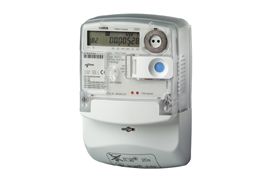 Smart Electricity Meter |
GCS | B | The Telecom Engineering Center (TEC) in India provides testing and certification services for a wide range of telecom and IT products, including smart electricity meters. TEC is responsible for ensuring the quality, reliability, and compliance of telecom equipment and systems used in India. If you are looking to obtain TEC certification for smart electricity meters, you would typically need to submit your product for testing and evaluation to TEC. They will assess the meter's compliance with relevant technical specifications, standards, and regulatory requirements. The specific certification process and requirements for smart electricity meters can vary, and it's best to reach out to TEC directly or visit their official website for the most up-to-date information. They can provide you with detailed guidelines, application procedures, and any specific standards or technical specifications that your smart meter needs to meet in order to obtain TEC certification. Keep in mind that TEC certification is primarily applicable to the Indian market. If you plan to sell or deploy smart electricity meters in other countries, you may need to comply with the relevant certification and regulatory requirements specific to those regions. |
| 15 |  Smart Watch |
GCS | B | Telecom Engineering Center (TEC), a division of the International Telecommunication Union (ITU), provides accredited certification for smart watches and other mobile devices. TEC tests both the hardware and software components of the device to ensure that they meet the applicable standards, guidelines, and requirements. The certification process includes safety tests, performance tests, and compatibility tests. Once certified, the device is ready for sale worldwide. However, it's important to note that certification requirements and processes can change over time. To obtain accurate and up-to-date information regarding TEC certification for smart watches, I recommend reaching out to TEC directly or visiting their official website. They will be able to provide you with the latest information on certification procedures, requirements, and any applicable standards or regulations for smart watches in India. Additionally, if you plan to sell or distribute smart watches internationally, it's crucial to research and comply with the certification and regulatory requirements specific to the target markets outside of India. Various countries and regions have their own certification bodies and standards, such as CE certification in Europe or FCC certification in the United States, that may apply to smart watches. |
| 16 |  Smart Camera |
GCS | B | The TEC Certification for Smart Camera is an industry-leading certification program designed to ensure that smart cameras meet the highest standards of quality, performance, and safety. The certification is designed to help manufacturers, integrators, and users of smart cameras to identify products that meet these standards. The program is administered by the TEC Certification Authority, an independent, third-party organization that evaluates and verifies the performance of smart cameras. The certification program includes a detailed review of each product's performance, features, safety, and quality assurance features. The certification is a voluntary program and is not a mandatory requirement for any type of smart camera. However, it's worth noting that if you are referring to smart cameras in the context of consumer electronics or surveillance systems, there may be other certifications or regulatory requirements that are more relevant. For example, certifications like CE, FCC, or RoHS might be applicable depending on the target market or intended use of the smart camera. To ensure compliance and market acceptance, I recommend researching the specific certification requirements and standards relevant to smart cameras in the target market or region where you plan to sell or deploy your products. Consulting with certification bodies, regulatory authorities, or industry associations in that particular market will provide you with the most accurate and up-to-date information. |
| 17 | 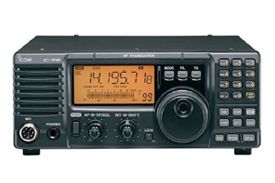 HF Radio |
GCS | c | When it comes to HF radios, it's important to consider not only TEC certification but also other relevant certifications and regulatory requirements depending on the specific use case and target market. For example, in addition to TEC certification, HF radios may need to comply with international standards such as CE certification for Europe or FCC certification for the United States. To ensure compliance and market acceptance, I recommend researching the specific certification requirements and standards relevant to HF radios in the target market or region where you plan to use or sell your radios. Consulting with certification bodies, regulatory authorities, or industry associations in that particular market will provide you with the most accurate and up-to-date information. The FCC (Federal Communications Commission) is the governing body that regulates and issues the certification for HF radio. In order to be certified for HF radio, you must pass the FCC Element 1, 2 and 3 tests. The Element 1 test covers basic radio theory, the Element 2 covers radio wave propagation and the Element 3 covers radio regulations and operating practices. You must be at least 18 years old to apply for certification. You can apply for the exam through a Volunteer Examiner Coordinator (VEC), which will verify your identity and administer the exam. Once you pass the exam, you will receive a certificate from the FCC. In order to use HF radio, you must have a valid Amateur Radio Operator License with a valid call sign. You must also follow the FCC rules and regulations regarding HF radio use. The FCC also requires that you have a valid ship station license if you are operating a shipboard station. Additionally, if you are operating outside the United States, you must obtain an authorization from the FCC for international operations. |
| 18 | 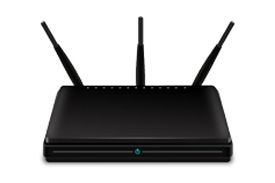 Router |
SCS | c | The Telecom Engineering Center (TEC) in India provides testing and certification services for a wide range of telecom and IT products, including routers. TEC is responsible for ensuring the quality, reliability, and compliance of telecom equipment and systems used in India. To obtain TEC certification for a router, you would typically need to submit your product for testing and evaluation to TEC. They will assess the router's compliance with relevant technical specifications, standards, and regulatory requirements. The specific certification process and requirements for routers can vary, and it's best to reach out to TEC directly or visit their official website for the most up-to-date information. They can provide you with detailed guidelines, application procedures, and any specific standards or technical specifications that your router needs to meet in order to obtain TEC certification. Additionally, if you plan to sell or distribute routers internationally, it's important to research and comply with the certification and regulatory requirements specific to the target markets outside of India. Different countries and regions may have their own certification bodies and standards that apply to routers, such as CE certification in Europe or FCC certification in the United States. |
| 19 | 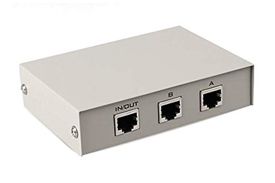 LAN Switch |
SCS | c | The Telecom Engineering Center (TEC) in India primarily focuses on testing and certification for telecommunications equipment and systems. While their primary scope is in the field of telecommunications, they may provide certification services for LAN (Local Area Network) switches, which are commonly used in networking infrastructure. To obtain accurate and up-to-date information regarding TEC certification for LAN switches, I recommend reaching out to TEC directly or visiting their official website. They will be able to provide you with the latest information on certification procedures, requirements, and any applicable standards or regulations for LAN switches in India. Additionally, when it comes to LAN switches, there are other relevant certifications and standards to consider depending on the target market or region. For example, in addition to TEC certification, LAN switches may need to comply with international standards such as CE certification for Europe or FCC certification for the United States. To ensure compliance and market acceptance, I recommend researching the specific certification requirements and standards relevant to LAN switches in the target market or region where you plan to use or sell your switches. Consulting with certification bodies, regulatory authorities, or industry associations in that particular market will provide you with the most accurate and up-to-date information. |
| 20 | 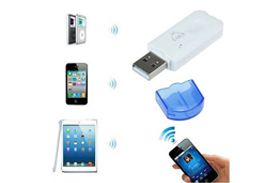 Mobile User Equipment |
GCS | c | The Telecom Engineering Center (TEC) in India primarily focuses on testing and certification for telecommunications equipment and systems. When it comes to mobile user equipment, such as mobile phones or smartphones, TEC does provide certification services to ensure compliance with technical specifications and regulatory requirements. For accurate and up-to-date information regarding TEC certification for mobile user equipment, I recommend reaching out to TEC directly or visiting their official website. They will provide you with the latest information on certification procedures, requirements, and any specific technical specifications or standards that your mobile user equipment needs to meet for TEC certification in India. It's worth noting that in addition to TEC certification, mobile user equipment may also need to comply with other certifications and regulations specific to the target market or region where the devices will be used or sold. These may include certifications like CE certification for Europe, FCC certification for the United States, or other regional certification requirements. To ensure compliance and market acceptance, I recommend researching the specific certification requirements and standards relevant to the target market or region where you plan to deploy or distribute your mobile user equipment. Consulting with certification bodies, regulatory authorities, or industry associations in that particular market will provide you with the most accurate and up-to-date information. |
| 21 | 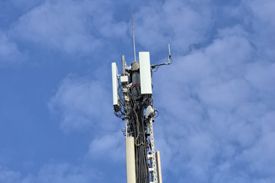 Mobile BTS (Base Station for Cellular Network) |
GCS | c | The Telecom Engineering Center (TEC) in India provides testing and certification services for a wide range of telecommunications equipment and systems, including Mobile BTS (Base Stations for Cellular Networks). TEC is responsible for ensuring the quality, reliability, and compliance of telecom equipment used in India. For accurate and up-to-date information regarding TEC certification for Mobile BTS, I recommend reaching out to TEC directly or visiting their official website. They will provide you with the latest information on certification procedures, requirements, and any specific technical specifications or standards that your Mobile BTS needs to meet for TEC certification in India. In addition to TEC certification, it's important to consider other certifications and regulatory requirements specific to the target market or region where you plan to deploy your Mobile BTS. These may include certifications mandated by regulatory authorities, such as Type Approval, and compliance with regional standards like CE certification in Europe or FCC certification in the United States. To ensure compliance and market acceptance, I recommend researching the specific certification requirements and standards relevant to the target market or region where you plan to deploy your Mobile BTS. Consulting with certification bodies, regulatory authorities, or industry associations in that particular market will provide you with the most accurate and up-to-date information. |
| 22 | 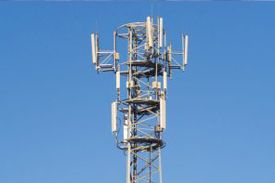 Compact Cellular Network |
GCS | C | The TEC Certification for Compact Cellular Network is an international standard for compliance with the requirements of the 3GPP TS 23.501 Technical Specification. This certification is a part of the certification program of the Global Certification Forum (GCF). It is designed to ensure that all products and services offered in the global market are compliant with the 3GPP TS 23.501 Technical Specification. The certification is based on the requirements in 3GPP TS 23.501 and other related standards. The TEC Certification for Compact Cellular Network is designed to improve the interoperability of products and services across the world. This certification helps ensure that the products and services are compliant with the 3GPP TS 23.501 Technical Specification. The certification is based on tests performed by the GCF and includes features such as: • Security features that protect the network from unauthorized access. • Quality of service requirements. • Interoperability features to ensure compatibility with other 3GPP TS 23.501 compliant products. • Network performance tests. • Robustness and stability tests. The TEC Certification for Compact Cellular Network is a tool that helps to ensure that the products and services offered by the global market are compliant with the 3GPP TS 23.501 Technical Specification. The certification helps to ensure that the products and services are secure, reliable, and provide the performance necessary for a successful operation. |
| 23 | 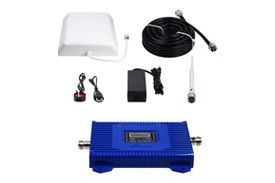 Repeater for Cellular Network |
GCS | C | The Telecom Engineering Center (TEC) in India provides testing and certification services for a wide range of telecommunications equipment and systems, including repeaters for cellular networks. Repeater devices are used to enhance and extend cellular network coverage. For accurate and up-to-date information regarding TEC certification for repeaters for cellular networks, I recommend reaching out to TEC directly or visiting their official website. They will provide you with the latest information on certification procedures, requirements, and any specific technical specifications or standards that your repeater needs to meet for TEC certification in India. In addition to TEC certification, it's important to consider other certifications and regulatory requirements specific to the target market or region where you plan to deploy or sell your repeater. These could include certifications mandated by regulatory authorities, such as Type Approval, and compliance with regional standards like CE certification in Europe or FCC certification in the United States. To ensure compliance and market acceptance, I recommend researching the specific certification requirements and standards relevant to the target market or region where you plan to deploy your repeater for cellular networks. Consulting with certification bodies, regulatory authorities, or industry associations in that particular market will provide you with the most accurate and up-to-date information. |
| 24 | 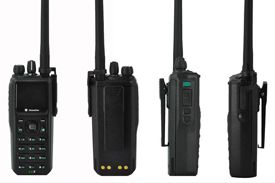 VHF UHF Radio System Equipment |
GCS | C | The Telecom Engineering Center (TEC) in India primarily focuses on testing and certification for telecommunications equipment and systems, including VHF (Very High Frequency) and UHF (Ultra High Frequency) radio system equipment. TEC is responsible for ensuring the quality, reliability, and compliance of telecom equipment used in India. To obtain TEC certification for VHF/UHF radio system equipment, manufacturers typically need to submit their equipment for testing and evaluation to TEC. The certification process involves assessing the equipment's compliance with relevant technical specifications, standards, and regulatory requirements set by TEC. For accurate and up-to-date information regarding TEC certification for VHF/UHF radio system equipment, I recommend reaching out to TEC directly or visiting their official website. They will provide you with the latest information on certification procedures, requirements, and any specific technical specifications or standards that your equipment needs to meet for TEC certification in India. In addition to TEC certification, it's important to consider other certifications and regulatory requirements specific to the target market or region where you plan to deploy or sell your VHF/UHF radio system equipment. These may include certifications mandated by regulatory authorities, compliance with regional standards, and radio frequency spectrum licensing requirements. |
| 25 | 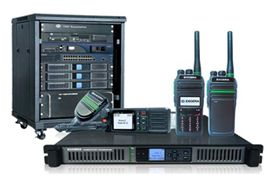 Mobile Radio Trunking System |
GCS | C | The Telecom Engineering Center (TEC) in India primarily focuses on testing and certification for telecommunications equipment and systems. While TEC provides certification services for various types of telecom equipment, including mobile radio systems, it's important to note that TEC's certification scope may not specifically mention "Mobile Radio Trunking System" as a separate category. For accurate and up-to-date information regarding TEC certification for mobile radio trunking systems, I recommend reaching out to TEC directly or visiting their official website. They will provide you with the latest information on certification procedures, requirements, and any specific technical specifications or standards that your mobile radio trunking system needs to meet for TEC certification in India. In addition to TEC certification, it's important to consider other certifications and regulatory requirements specific to the target market or region where you plan to deploy or sell your mobile radio trunking system. These could include certifications mandated by regulatory authorities and compliance with regional standards. To ensure compliance and market acceptance, I recommend researching the specific certification requirements and standards relevant to the target market or region where you plan to operate your mobile radio trunking system. Consulting with certification bodies, regulatory authorities, or industry associations in that particular market will provide you with the most accurate and up-to-date information. |
| 26 | 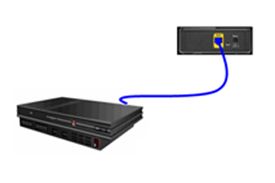 Equipment Operating in 2.4 GHz and 5 GHz Bands |
SCS | B | The Telecom Engineering Center (TEC) in India primarily focuses on testing and certification for telecommunications equipment and systems. If you are referring to equipment operating in the 2.4 GHz and 5 GHz bands, such as Wi-Fi devices, TEC may offer certification services for these types of equipment. For accurate and up-to-date information regarding TEC certification for equipment operating in the 2.4 GHz and 5 GHz bands, I recommend reaching out to TEC directly or visiting their official website. They will provide you with the latest information on certification procedures, requirements, and any specific technical specifications or standards that your equipment needs to meet for TEC certification in India. It's worth noting that in addition to TEC certification, equipment operating in the 2.4 GHz and 5 GHz bands may need to comply with other certifications and regulatory requirements specific to the target market or region where you plan to deploy or sell your equipment. These could include certifications mandated by regulatory authorities, such as Type Approval, and compliance with regional standards. To ensure compliance and market acceptance, I recommend researching the specific certification requirements and standards relevant to the target market or region where you plan to operate your equipment in the 2.4 GHz and 5 GHz bands. Consulting with certification bodies, regulatory authorities, or industry associations in that particular market will provide you with the most accurate and up-to-date information. |
| 27 | 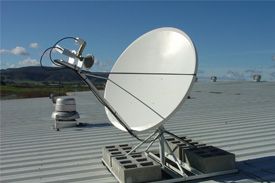 Satellite Communication Equipment |
GCS | C | The Telecom Engineering Center (TEC) in India primarily focuses on testing and certification for telecommunications equipment and systems. While TEC's primary scope is in the field of terrestrial telecommunications, they also provide certification services for certain types of satellite communication equipment. To obtain TEC certification for satellite communication equipment, manufacturers typically need to submit their equipment for testing and evaluation to TEC. The certification process involves assessing the equipment's compliance with relevant technical specifications, standards, and regulatory requirements set by TEC. For accurate and up-to-date information regarding TEC certification for satellite communication equipment, I recommend reaching out to TEC directly or visiting their official website. They will provide you with the latest information on certification procedures, requirements, and any specific technical specifications or standards that your satellite communication equipment needs to meet for TEC certification in India. In addition to TEC certification, it's important to consider other certifications and regulatory requirements specific to the target market or region where you plan to deploy or sell your satellite communication equipment. These could include certifications mandated by regulatory authorities, compliance with regional standards, and adherence to international satellite communication regulations. |
| 28 | 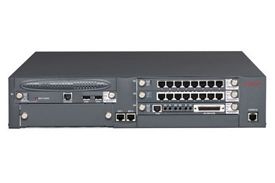 IP Terminal |
GCS | B | TEC (Telecom Equipment Certification) is a certification process for telecom equipment used in India. The process is managed by the Telecommunications Engineering Centre (TEC) which is an autonomous body under the Department of Telecommunications, Government of India. To be certified, a telecom product must meet the minimum technical and safety requirements laid down by the TEC. To get certified for an IP terminal, the manufacturer needs to submit an application along with the technical specifications of the product and a certificate of conformity (COC) to the TEC. The TEC will then review the application and verify that the product meets the technical requirements and safety standards of the TEC. If the product is found to be compliant, the manufacturer will be issued a certificate of approval, and the product can be sold in India. The TEC also has a certification program for IP terminals that are used in enterprise networks. This certification program includes testing the IP terminal’s compatibility with the enterprise network, security, and performance. The certification process for this type of IP terminal is more rigorous than the certification process for consumer-grade IP terminals. process for this type of IP terminal is more rigorous than the certification process for consumer-grade IP terminals. |
| 29 | .jpg) Media Gateway |
GCS | C | The Telecom Engineering Center (TEC) in India provides testing and certification services for various types of telecommunications equipment and systems, including Media Gateways. A Media Gateway is a device that converts and connects different types of communication networks, such as traditional telephone networks (PSTN) and Voice over IP (VoIP) networks. For accurate and up-to-date information regarding TEC certification for Media Gateways, I recommend reaching out to TEC directly or visiting their official website. They will provide you with the latest information on certification procedures, requirements, and any specific technical specifications or standards that your Media Gateway needs to meet for TEC certification in India. In addition to TEC certification, it's important to consider other certifications and regulatory requirements specific to the target market or region where you plan to deploy or sell your Media Gateway. These could include certifications mandated by regulatory authorities and compliance with regional standards. To ensure compliance and market acceptance, I recommend researching the specific certification requirements and standards relevant to the target market or region where you plan to operate your Media Gateway. Consulting with certification bodies, regulatory authorities, or industry associations in that particular market will provide you with the most accurate and up-to-date information. |
| 30 | 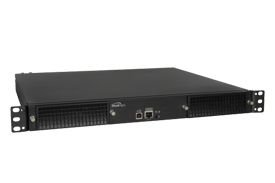 Signalling Gateway |
GCS | C | The Signalling Gateway Certification from TEC is a certification program that provides organizations with a comprehensive set of standards and processes for validating their signalling gateway technology. The certification program focuses on the security, reliability, and interoperability of signalling gateways and provides organizations with an assurance that their gateway technology meets the highest standards. The certification process consists of a comprehensive set of tests designed to evaluate the security, reliability, and interoperability of a signalling gateway. The tests are divided into three main categories: Security, Reliability, and Interoperability. Each category contains a set of tests that are designed to evaluate a signalling gateway’s ability to provide secure, reliable, and interoperable communication. The tests are conducted by an independent third-party testing organization and the results are reviewed by a TEC-accredited engineer. Once the tests are completed and the results are reviewed, the certification is issued to the organization. This certification is valid for one year and must be renewed annually to maintain its validity. By obtaining a TEC Certification for Signalling Gateway, organizations can be assured that their gateway technology meets the highest standards of security, reliability, and interoperability. |
| 31 | 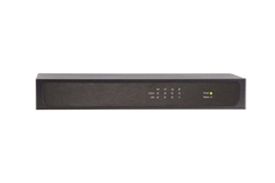 Session Border Controller |
GCS | C | The SBC Institute, an independent, global organization dedicated to the advancement of Session Border Controller (SBC) technology, offers the SBC Certified Professional (SBCCP) Certification Program. This program is designed to recognize individuals who have achieved a high level of proficiency in the design, installation, configuration, and management of SBCs. The SBCCP certification validates an individual's knowledge of SBCs and provides employers with assurance that the individual has the necessary skills to work with SBCs. The certification requires candidates to pass an online exam in order to earn the certification. The SBCCP is offered in two levels: Level 1 focuses on the fundamentals of SBCs, while Level 2 covers more advanced topics and requires more advanced knowledge. The SBCCP certification is recognized by many organizations, including the Internet Engineering Task Force (IETF), the American Registry of Internet Numbers (ARIN), the Global System for Mobile Communications (GSM), and the International Telecommunication Union (ITU). Additionally, the certification is recognized by many companies in the telecommunications and IT industries. |
| 32 | 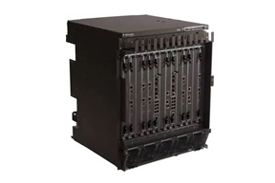 SoftSwitch |
GCS | C | The Telecom Engineering Center (TEC) is an organization in India responsible for the standardization and certification of telecom equipment. However, as of my knowledge cutoff in September 2021, TEC does not offer a specific certification for SoftSwitches. TEC primarily focuses on type approval and certification of telecom equipment, including switches, routers, access equipment, and other network infrastructure components. Their certification process ensures compliance with technical and regulatory requirements in the Indian telecommunications market. For SoftSwitch-specific certifications, I recommend considering vendor-specific certifications or looking into broader telecommunications certifications that cover SoftSwitch technologies and related concepts. As mentioned earlier, certifications from SoftSwitch vendors or general telecommunications certifications such as those offered by Cisco, Juniper Networks, or Avaya may provide relevant knowledge and skills in the area of SoftSwitches. It's important to note that certification offerings and availability may change over time. Therefore, I recommend visiting the official website bl-india.com or contacting us directly for the most up-to-date information on certifications related to SoftSwitches. |
| 33 | 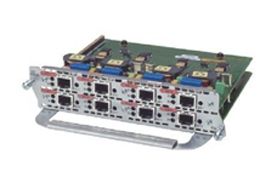 ISDN Customer Premises Equipment |
SCS | A | Telecom Engineering Center (TEC) is a certification body recognized by the Indian government for certifying the compliance of ISDN customer premises equipment (CPE) to the applicable Indian telecom standards. The TEC certification is mandatory for ISDN CPEs to be used in India. The certification process involves a thorough review of the product design and testing of the product to ensure that it meets the required specifications. The certification process also requires the manufacturer to provide a detailed report of the product's performance and any corrective actions taken to ensure that it meets the required standards and any potential risks associated with the product. The TEC certification ensures that the ISDN CPE is safe to use and provides a reliable service to customers. Telecom Engineering Center (TEC) in India offers certification for telecom equipment, including ISDN (Integrated Services Digital Network) Customer Premises Equipment (CPE). TEC is responsible for ensuring that telecom equipment meets the technical and regulatory requirements for deployment in India. To obtain TEC certification for ISDN CPE, manufacturers typically need to follow the certification process outlined by TEC. The process generally involves the following steps: It's important to note that the specific certification process, requirements, and associated fees may vary. Manufacturers interested in obtaining TEC certification for their ISDN CPE should contact TEC visit our official website bl-india.com for the most up-to-date and detailed information on the certification process, documentation requirements, and any specific guidelines. Please be aware that certification processes and requirements may change over time, so it is essential to consult the latest guidelines provided by TEC or reach out to them directly for the most accurate and up-to-date information regarding TEC certification for ISDN Customer Premises Equipment. |
| 34 | 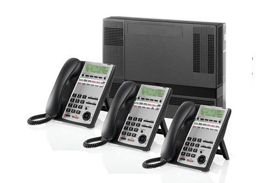 Private Automatic Branch Exchange (PABX) |
SCS | B | Telecom engineering center Certification for Private Automatic Branch Exchange (PABX) The Telecom Engineering Center (TEC) does not directly provide certification for Private Automatic Branch Exchange (PABX) systems. However, the TEC does provide certification for specific components used in PABX systems, such as Telecommunications Line Interface Devices (TLIDs) and Data Communications Equipment (DCEs). Certification of these components is necessary for the successful operation of a PABX system. In addition, the TEC also provides certification for software and hardware that can be used to control and manage PABX systems. This includes certification for Voice over IP (VoIP) systems, which are used to make and receive calls over the Internet. The TEC also provides certification for telecommunications network equipment, such as switches, routers, and access points, which can be used to connect PABX systems to the public telephone network. Certification of these components is necessary for the successful operation of a PABX system. Finally, the TEC also provides certification for other components and systems that may be used in the installation and maintenance of PABX systems, such as power supplies, cabling, and installation tools. This certification ensures that these components meet minimum safety and performance standards. |
| 35 | 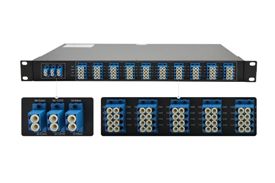 Transmission Terminal Equipment-1 |
SCS | C | The TEC Certification for Transmission Terminal Equipment-1 (TEC-1) is an international standard developed by the Telecommunications Industry Association (TIA) that defines the requirements for certifying the reliability, safety, and performance of transmission terminal equipment (TTE) used in communications networks. TEC-1 covers both digital and analog TTE equipment and provides a detailed set of criteria and test procedures to ensure that the equipment meets the requirements of the standard. The TEC-1 certification process also includes a review of the manufacturer’s design, manufacturing, and quality management systems. TEC-1 certification is required for all TTE equipment used in the United States and most other countries. The TEC-1 certification process is designed to ensure that the equipment is reliable, safe, and meets the applicable performance requirements. The certification process includes rigorous testing of the equipment, as well as a review of the manufacturer’s design, manufacturing, and quality management systems. TEC-1 certification is important for ensuring that TTE equipment is safe, reliable, and meets the applicable performance requirements. It is also important for helping to ensure that the equipment is compatible with other equipment used in the network and that it meets the necessary |
| 36 | 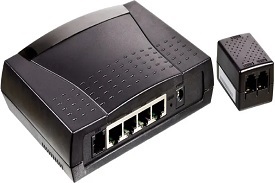 DSL Equipments |
GCS | B | As of my knowledge cutoff in September 2021, the Telecom Engineering Center (TEC) in India offers certification for telecom equipment, including DSL (Digital Subscriber Line) equipment. TEC is responsible for ensuring that telecom equipment meets the technical and regulatory requirements for deployment in India. To obtain TEC certification for DSL equipment, manufacturers typically need to follow the certification process outlined by TEC. The process generally involves the following steps: Application: The manufacturer submits an application to TEC, providing details about the DSL equipment and requesting certification. Document Submission: The manufacturer submits relevant technical documents, including product specifications, user manuals, and compliance statements, as per the requirements specified by TEC. Testing: TEC conducts testing of the DSL equipment to verify its compliance with the applicable technical standards and specifications. This may involve performance testing, interoperability testing, and compliance with DSL protocols and interfaces.Evaluation: TEC evaluates the test results and technical documentation provided by the manufacturer to assess compliance with the regulatory requirements and technical standards. Certification: If the DSL equipment meets the requirements, TEC grants certification, indicating that the equipment is compliant with the specified standards and can be deployed in the Indian market. It's important to note that the specific certification process, requirements, and associated fees may vary. Manufacturers interested in obtaining TEC certification for their DSL equipment should contact TEC visit our official website bl-india.com for the most up-to-date and detailed information on the certification process, documentation requirements, and any specific guidelines. |
| 37 | 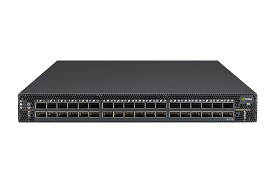 Infiniband Switch |
GCS | C | TEC is mandatory for all classes of Infiniband Switches to be sold in India. TEC-certified Infiniband Switches are now available with many features. TEC certification for Infiniband Switch Scheme: It belongs to GCS, and Group: C TEC certification allows you to buy a good and reliable Infiniband Switch. Also guarantees that the data stored on the device is secure and there is no risk of data leakage. So if you are going to purchase an Infiniband switch for your business, make sure it is TEC certified. This will help you get the best product and also keep your data safe. Brand Liaison provides full support with TEC certification. Brand Contact Information and procedures to assist in obtaining TEC certification. |
| 38 | 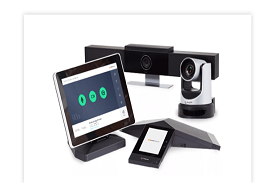 IP Multimedia Conferencing Equipment |
GCS | B | TEC is mandatory for all classes of IP multimedia conferencing products sold in India. TEC certified IP multimedia conferencing products are now available with many features.TEC certification forIP multimedia conferencing equipment, process: GCS and belongs to group: B. and it will work fine. Also guarantees that the data stored on the device is secure and there is no risk of data leakage. So, if you are going to purchase IP multimedia conferencing equipment for your business, make sure it is TEC certified. This will help you get the best product and also keep your data safe. Brand Liaison is fully supported by TEC certification. Information and procedures for Brand Liaison to assist in obtaining TEC certification |
| 39 | 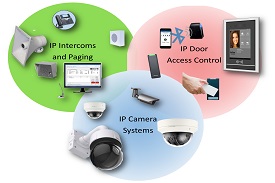 IP Security Equipment |
GCS | C | TEC is mandatory for all categories of IP security equipment to be sold in India. TEC certified IP security devices now have many features. TEC Certification for IP Security Appliances, Scheme: GCS and Group: C TEC Certification for IP Security Appliances, covers four variants - Firewall AppliancesIntrusion Detection4 System4 Intrusion Devices Control devicesTEC certification The DSL equipment you will buy is good and reliable. Also guarantees that the data stored on the device is secure and there is no risk of data leakage. So if you are going to purchase DSL equipment for your business, make sure it is TEC certified. This will help you get the best product and also keep your data safe. Brand Liaison is fully backed by TEC certification. Brand Contact Information and proced-ures to assist in obtaining TEC certification. |
| 40 | 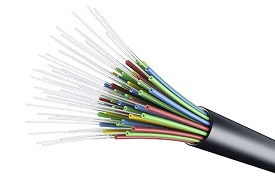 Optical Fibre Cable |
GCS | C | TEC is mandatory for all grades of fiber optic cable to be sold in India. TEC certified IP security devices now have many features belongs to TEC certification of fiber optic cables, Scheme: GCS and Group: C TEC certification of fiber optic cables covers 14 types - Hybrid cables - Fiber optic and metalFiber optic aligned ADSSFiber Optic Cables - ADSS Power lineFiber Optical Cable - Direct BuriedFiber Optic Cable - DSAFiber Optic Cable - DuctFiber Optic Cable - InternalFiber Optic Cable - InternalFiber Optic Cable - Internal 444 Internal Cable - Coupling AntennaFiber Optic Cable - Micro ChannelFiber Optical Cable - OutdoorFiber Optic Cable - Vertical TubeFiber Optic Ground Cable - OPGW TEC certification allows you to buy a fiber optic cable that will work well and well.Also guarantees that the data stored on the device is secure and there is no risk of data leakage. So if you are going to buy fiber optic cable for your business, make sure it has TEC certificate.This will help you get the best product and also keep your data safe.Brand Liaison provides full support with TEC certification. Brand Contact Information and procedures to assist in obtaining TEC certification. |
| 41 | 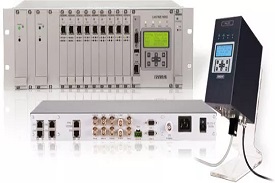 Precision Timing Protocol Grand Master Equipment |
GCS | C | TEC (Telecommunication Engineering Centre) is an Indian government organization responsible for standardization in the field of telecommunications. TEC certification is a mandatory requirement for telecommunication equipment to be used in India. Precision Timing Protocol (PTP) is a protocol used for synchronization of clocks in a network. A Grand Master is a device that serves as the primary time source in a PTP network. To obtain TEC certification for PTP Grand Master equipment, the equipment must meet certain technical requirements and undergo testing by TEC-approved labs. The specific technical requirements and testing procedures for TEC certification of PTP Grand Master equipment can be found in TEC's Technical Standards document TEC/GR/TX/CPE/002-01, which outlines the standards for "Clock synchronization using IEEE 1588v2 Precision Time Protocol (PTP) for IP-based packet networks." To obtain TEC certification, the manufacturer of the PTP Grand Master equipment must submit the equipment to a TEC-approved lab for testing. The lab will evaluate the equipment's compliance with the technical standards outlined in the TEC/GR/TX/CPE/002-01 document. If the equipment meets the technical requirements, the lab will issue a certificate of compliance, which the manufacturer can then use to obtain TEC certification for the equipment. |
| 42 | 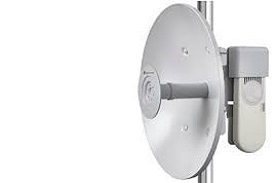 PTP PMP Microwave Fixed Radio Systems |
GCS | C | TEC (Telecommunication Engineering Centre) is an Indian government organization responsible for the standardization and certification of telecommunication equipment in India. TEC certification is a mandatory requirement for telecommunication equipment to be used in the Indian market. PTP (Precision Timing Protocol) PMP (Point-to-Multipoint) Microwave Fixed Radio Systems are wireless communication systems that provide point-to-multipoint connectivity using microwave radio frequencies. These systems often include features such as high-capacity data transmission, voice communication, and precise timing synchronization. To obtain TEC certification for PTP PMP Microwave Fixed Radio Systems, the equipment must comply with the technical standards specified by TEC. The specific technical requirements and testing procedures for TEC certification can be found in TEC's Technical Standards documents. You would need to refer to the relevant TEC standards that apply to PTP PMP Microwave Fixed Radio Systems to understand the specific requirements in detail. These standards may cover aspects such as radio frequency emissions, power levels, modulation techniques, interference mitigation, transmission quality, network management, and timing synchronization. |
| 43 | 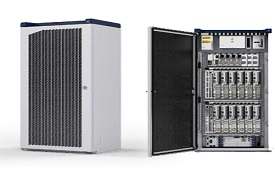 Mobility Management Entity |
GCS | C | TEC (Telecommunication Engineering Centre) is an Indian government organization responsible for the standardization and certification of telecommunication equipment in India. TEC certification is a mandatory requirement for telecommunication equipment to be used in the Indian market. A Mobility Management Entity (MME) is a key component in the Evolved Packet Core (EPC) of a mobile network. It is responsible for managing the mobility of user devices, such as smartphones and tablets, within the network. The MME plays a crucial role in functions like authentication, tracking, and handover procedures. To obtain TEC certification for a Mobility Management Entity, the equipment or software solution must comply with the technical standards specified by TEC. These standards cover various aspects related to telecommunications networks, including security, interoperability, performance, and compliance with Indian regulatory requirements. To understand the specific requirements and testing procedures for TEC certification of a Mobility Management Entity, you would need to refer to the relevant TEC Technical Standards documents. These documents outline the specific technical criteria that the equipment or software solution must meet. |
| 44 | 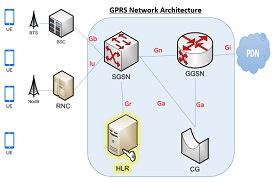 SGSN or GGSN |
GCS | C | TEC (Telecommunication Engineering Centre) is an Indian government organization responsible for the standardization and certification of telecommunication equipment in India. TEC certification is a mandatory requirement for telecommunication equipment to be used in the Indian market. SGSN (Serving GPRS Support Node) and GGSN (Gateway GPRS Support Node) are key components in the GSM (Global System for Mobile Communications) and UMTS (Universal Mobile Telecommunications System) networks. SGSN is responsible for the packet-switched services, such as internet connectivity, while GGSN acts as a gateway between the mobile network and external IP networks. To obtain TEC certification for SGSN or GGSN equipment, the manufacturer must ensure that their equipment complies with the technical standards specified by TEC. These standards cover various aspects of telecommunications networks, including security, interoperability, performance, and compliance with Indian regulatory requirements. To understand the specific requirements and testing procedures for TEC certification of SGSN or GGSN equipment, you would need to refer to the relevant TEC Technical Standards documents. These documents outline the specific technical criteria that the equipment must meet. |
| 45 | 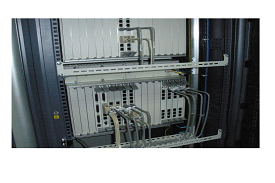 BSC RNC |
GCS | C | BSC (Base Station Controller) and RNC (Radio Network Controller) are key components in the GSM (Global System for Mobile Communications) and UMTS (Universal Mobile Telecommunications System) networks. The BSC is responsible for managing multiple base stations, while the RNC handles tasks such as radio resource management and signaling control. TEC (Telecommunication Engineering Centre) is an Indian government organization responsible for the standardization and certification of telecommunication equipment in India. TEC certification is a mandatory requirement for telecommunication equipment to be used in the Indian market. To obtain TEC certification for BSC or RNC equipment, the manufacturer must ensure that their equipment complies with the technical standards specified by TEC. These standards cover various aspects of telecommunications networks, including security, interoperability, performance, and compliance with Indian regulatory requirements. To understand the specific requirements and testing procedures for TEC certification of BSC or RNC equipment, you would need to refer to the relevant TEC Technical Standards documents. These documents outline the specific technical criteria that the equipment must meet. |
| 46 |  Cell Broadcast Centre |
GCS | C | TEC (Telecommunication Engineering Centre) is an Indian government organization responsible for the standardization and certification of telecommunication equipment in India. TEC certification is a mandatory requirement for telecommunication equipment to be used in the Indian market. To obtain TEC certification for a Cell Broadcast Centre, the manufacturer or provider of the CBC equipment or software solution must ensure that it complies with the technical standards specified by TEC. These standards cover various aspects of telecommunications networks, including security, interoperability, performance, and compliance with Indian regulatory requirements. A Cell Broadcast Centre (CBC) is a system that enables the broadcasting of messages to multiple mobile devices within a specific geographical area. It is commonly used for emergency alerts, public information dissemination, and commercial messaging. To understand the specific requirements and testing procedures for TEC certification of a Cell Broadcast Centre, you would need to refer to the relevant TEC Technical Standards documents. These documents outline the specific technical criteria that the equipment or software must meet. |
| 47 |  GMLC |
GCS | C | GMLC (Gateway Mobile Location Centre) is a key component in location-based services within a mobile network. It provides the interface between the mobile network and external location-based services, enabling the retrieval of accurate location information for mobile devices. TEC (Telecommunication Engineering Centre) is an Indian government organization responsible for the standardization and certification of telecommunication equipment in India. TEC certification is a mandatory requirement for telecommunication equipment to be used in the Indian market. To understand the specific requirements and testing procedures for TEC certification of a GMLC, you would need to refer to the relevant TEC Technical Standards documents. These documents outline the specific technical criteria that the equipment or software must meet. To obtain TEC certification, the manufacturer or provider of the GMLC would need to submit their equipment or software to a TEC-approved testing laboratory. The lab would evaluate the compliance of the GMLC with the TEC standards through rigorous testing and verification processes. If the equipment or software meets the requirements, the lab would issue a certificate of compliance, which the manufacturer or provider can then use to obtain TEC certification. |
| 48 | 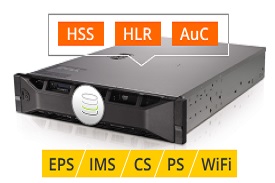 HLR AUC HSS |
GCS | C | TEC (Telecommunication Engineering Centre) is an Indian government organization responsible for the standardization and certification of telecommunication equipment in India. TEC certification is a mandatory requirement for telecommunication equipment to be used in the Indian market. HLR (Home Location Register), AUC (Authentication Centre), and HSS (Home Subscriber Server) are key components in a mobile network's core infrastructure. They play critical roles in subscriber management, authentication, and data storage. To understand the specific requirements and testing procedures for TEC certification of HLR, AUC, or HSS equipment, you would need to refer to the relevant TEC Technical Standards documents. These documents outline the specific technical criteria that the equipment or software must meet. To obtain TEC certification, the manufacturer or provider of the HLR, AUC, or HSS would need to submit their equipment or software to a TEC-approved testing laboratory. The lab would evaluate the compliance of the equipment or software with the TEC standards through rigorous testing and verification processes. If the equipment or software meets the requirements, the lab would issue a certificate of compliance, which the manufacturer or provider can then use to obtain TEC certification. |
| 49 | 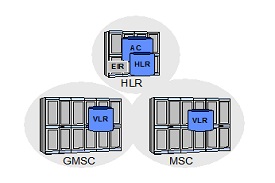 MSC or MSC-S or GMSC or GMSC-S including VLR |
GCS | C | TEC (Telecommunication Engineering Centre) is an Indian government organization responsible for the standardization and certification of telecommunication equipment in India. TEC certification is a mandatory requirement for telecommunication equipment to be used in the Indian market. MSC (Mobile Switching Centre), MSC-S (Mobile Switching Centre - Server), GMSC (Gateway Mobile Switching Centre), GMSC-S (Gateway Mobile Switching Centre - Server), and VLR (Visitor Location Register) are key components in a mobile network's core infrastructure. They handle call routing, subscriber management, and other core network functions. To obtain TEC certification for MSC, MSC-S, GMSC, GMSC-S, or VLR equipment, the manufacturer or provider of the equipment or software solution must ensure that it complies with the technical standards specified by TEC. These standards cover various aspects of telecommunications networks, including security, interoperability, performance, and compliance with Indian regulatory requirements. To understand the specific requirements and testing procedures for TEC certification of MSC, MSC-S, GMSC, GMSC-S, or VLR equipment, you would need to refer to the relevant TEC Technical Standards documents. These documents outline the specific technical criteria that the equipment or software must meet. |
| 50 | 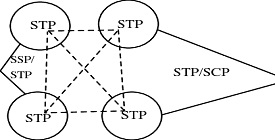 Service Control Point (SCP) |
GCS | C | TEC (Telecommunication Engineering Centre) is an Indian government organization responsible for the standardization and certification of telecommunication equipment in India. TEC certification is a mandatory requirement for telecommunication equipment to be used in the Indian market. A Service Control Point (SCP) is a key component in a telecommunications network that provides intelligent network (IN) services, such as call forwarding, caller ID, and voice messaging. To obtain TEC certification for an SCP, the manufacturer or provider of the equipment or software solution must ensure that it complies with the technical standards specified by TEC. These standards cover various aspects of telecommunications networks, including security, interoperability, performance, and compliance with Indian regulatory requirements. To understand the specific requirements and testing procedures for TEC certification of an SCP, you would need to refer to the relevant TEC Technical Standards documents. These documents outline the specific technical criteria that the equipment or software must meet. |
| 51 | 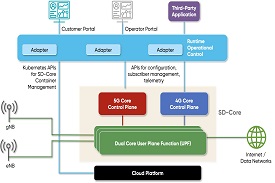 5G Core |
GCS | C | TEC is a mandatory requirement for all 5G Core classes to be sold in India. TEC-certified 5G Core is now available in the market with various features. TEC certification for the 5G core falls under scheme: GCS and group: C TEC certification for 5G Core covers twelve variants - AMFAuSFBSFCHFNEFNSSFPCFSMFSMSFUDMUDRUPF TEC certification ensures that the purchased 5G core is of good quality and will work efficiently.It also ensures that the data stored on the device is safe and there is no risk of data leakage. So if you are planning to buy a 5G Core for your business, make sure it is TEC certified. This will help you get the best quality product and also keep your data safe. Brand Liaison provides complete support in the TEC certificate. Brand Liaison helps with documentation and procedures for obtaining the TEC certificate. |
| 52 | 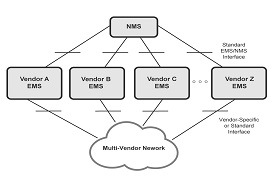 OMC or EMS or NMS or OSS |
GCS | C | TEC (Telecommunication Engineering Centre) is an Indian government organization responsible for the standardization and certification of telecommunication equipment in India. TEC certification is a mandatory requirement for telecommunication equipment to be used in the Indian market. OMC (Operation and Maintenance Centre), EMS (Element Management System), NMS (Network Management System), and OSS (Operations Support System) are terms commonly used to refer to systems or software used for managing and monitoring telecommunications networks. To obtain TEC certification for OMC, EMS, NMS, or OSS equipment or software, the manufacturer or provider must ensure that it complies with the technical standards specified by TEC. These standards cover various aspects of telecommunications networks, including security, interoperability, performance, and compliance with Indian regulatory requirements. To understand the specific requirements and testing procedures for TEC certification of OMC, EMS, NMS, or OSS equipment, you would need to refer to the relevant TEC Technical Standards documents. These documents outline the specific technical criteria that the equipment or software must meet. |
| 53 | 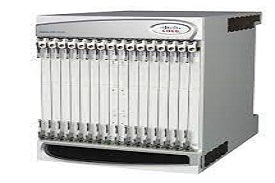 S-GW or P-GW |
GCS | C | TEC is a mandatory requirement for all Serving Gate (S-GW) / Packet Gateway (P-GW) classes to be sold in India. TEC certified Serving Gate (S-GW) / Packet Gateway (P-GW) is now available in the market with various features. TEC certification for Serving Gate (S-GW) / Packet Gateway (P-GW) falls under, Scheme: GCS and Group: C TEC certification for Serving Gate (S-GW) / Packet Gateway (P-GW) covers two variants -P-gateS-GatewayTEC certification ensures that the Serving Gate (S-GW) / Packet Gateway (P-GW) you purchase is of good quality and will work efficiently. It also ensures that the data stored on the device is safe and there is no risk of data leakage. So if you are planning to buy a Serving Gate (S-GW) / Packet Gateway (P-GW) for your business, make sure it is TEC certified. This will help you get the best quality product and also keep your data safe.Brand Liaison provides complete support in the TEC certificate. Brand Liaison helps with documentation and procedures for obtaining the TEC certificate. |
| 54 | 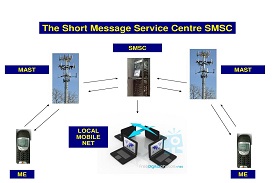 SMSC |
GCS | C | TEC (Telecommunication Engineering Centre) is an Indian government organization responsible for the standardization and certification of telecommunication equipment in India. TEC certification is a mandatory requirement for telecommunication equipment to be used in the Indian market. SMSC (Short Message Service Center) is a key component in a mobile network that handles the routing, storage, and delivery of SMS (Short Message Service) messages. To obtain TEC certification for an SMSC, the manufacturer or provider of the equipment or software solution must ensure that it complies with the technical standards specified by TEC. These standards cover various aspects of telecommunications networks, including security, interoperability, performance, and compliance with Indian regulatory requirements. To understand the specific requirements and testing procedures for TEC certification of an SMSC, you would need to refer to the relevant TEC Technical Standards documents. These documents outline the specific technical criteria that the equipment or software must meet. To obtain TEC certification, the manufacturer or provider of the SMSC would need to submit their equipment or software to a TEC-approved testing laboratory. The lab would evaluate the compliance of the equipment or software with the TEC standards through rigorous testing and verification processes. If the equipment or software meets the requirements, the lab would issue a certificate of compliance, which the manufacturer or provider can then use to obtain TEC certification. |
| 55 | 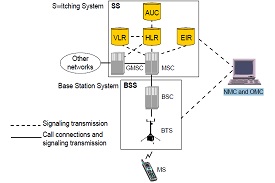 EIR |
GCS | C | TEC (Telecommunication Engineering Centre) is an Indian government organization responsible for the standardization and certification of telecommunication equipment in India. TEC certification is a mandatory requirement for telecommunication equipment to be used in the Indian market. EIR (Equipment Identity Register) is a database used in mobile networks to store information about the identity of mobile devices. It helps in identifying stolen or unauthorized devices and preventing them from accessing the network. To obtain TEC certification for an EIR solution or equipment, the manufacturer or provider must ensure that it complies with the technical standards specified by TEC. These standards cover various aspects of telecommunications networks, including security, interoperability, performance, and compliance with Indian regulatory requirements. To understand the specific requirements and testing procedures for TEC certification of an EIR, you would need to refer to the relevant TEC Technical Standards documents. These documents outline the specific technical criteria that the equipment or software must meet. |
| 56 | 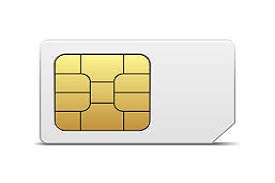 SIM |
GCS | C | TEC (Telecommunication Engineering Centre) is an Indian government organization responsible for the standardization and certification of telecommunication equipment in India. TEC certification is a mandatory requirement for telecommunication equipment to be used in the Indian market. When it comes to SIM (Subscriber Identity Module) cards, TEC does not specifically provide certification for SIM cards. However, SIM cards need to comply with international standards set by organizations such as the International Telecommunication Union (ITU) and the European Telecommunications Standards Institute (ETSI) to ensure interoperability and compatibility with mobile networks. SIM cards are standardized globally, and they undergo testing and certification processes conducted by independent organizations and industry bodies. These certifications ensure that the SIM cards meet technical specifications and security requirements. If you are looking for information about certification specifically related to SIM cards in India, it would be best to refer to the regulatory guidelines and standards set by the Department of Telecommunications (DoT) in India. The DoT may have specific requirements or regulations related to SIM cards that need to be followed by mobile network operators and SIM card manufacturers in the country. |
| 57 | 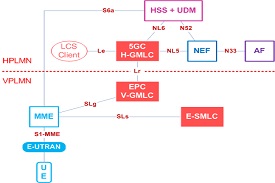 SMLC or eSMLC |
GCS | C | TEC is a mandatory requirement for all SMLC or eSMLC classes to be sold in India. TEC-certified SMLC or eSMLC is now available in the market with various features. TEC certification for SMLC or eSMLC falls under Scheme: GCS and Group: C TEC certification for SMLC or eSMLC covers three variants –eSMLC for LTESMLC for GSMSMLC for WCDMATEC certification ensures that the purchased SMLC or eSMLC is of good quality and will work efficiently. It also ensures that the data stored on the device is safe and there is no risk of data leakage. So if you are planning to buy an SMLC or eSMLC for your business, make sure it is TEC certified. This will help you get the best quality product and also keep your data safe.Brand Liaison provides complete support in the TEC certificate. Brand Liaison helps with documentation and procedures for obtaining the TEC certificate. |
| 58 | 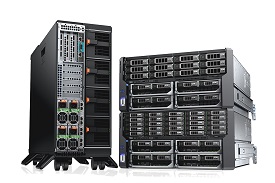 Server |
GCS | B | The TEC certification for the server falls under the scheme: GCS and group: CTEC Certification for Server covers variants - server. TEC certification ensures that the purchased server is of high quality and will work efficiently. It also ensures that the data stored on the device is safe and there is no risk of data leakage. So if you are planning to buy a server for your business, make sure it is TEC certified. This will help you get the best quality product and also keep your data safe. Brand Liaison provides complete support in the TEC certificate. Brand Liaison helps with documentation and procedures for obtaining the TEC certificate. |
| 59 | 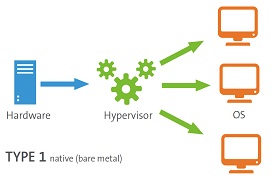 Hypervisor |
GCS | B | TEC is mandatory for all classes of Hypervisors to be sold in India. TEC certified hypervisors are now available with many features. TEC certification for Hypervisor, Scheme: GCS and Group: C TEC certification for Hypervisor covers many things -TEC certification for HypervisorTEC certification is the best and works well. Also guarantees that the data stored on the device is secure and there is no risk of data leakage. So if you are planning to purchase a hypervisor for your business, make sure it is TEC certified. This will help you get the best product and also keep your data safe. Brand Liaison provides full support with TEC certification. Brand Contact Information and procedures to assist in obtaining TEC certification. |
| 60 | 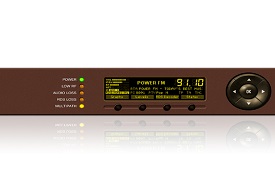 Radio Broadcast Receiver RBR |
GCS | B | TEC approval for RBR radio broadcast covers three different scopes - All RBR vehicles require external electronics All RBR home electronics Other devices with RBR interface TEC certification to make sure the broadcast RBR you purchased is good and working well. Also guarantees that the data stored on the device is secure and there is no risk of data leakage. So if you are going to buy an RBR radio for your business, make sure it is TEC certified. This will help you get the best product and also keep your data safe. Brand Liaison is fully backed by TEC certification. Brand Contact Information and procedures to assist in obtaining TEC certification. |
| 61 | 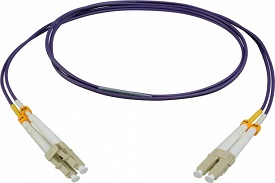 Optical Fibre - Single Mode |
GCS | C | TEC (Telecommunication Engineering Centre) in India provides technical standards and certification processes for various telecommunication equipment, including optical fiber cables. However, it's important to note that TEC certification for optical fiber cables generally covers the performance and compliance aspects rather than the specific "single mode" designation. When it comes to optical fiber cables, TEC has established technical standards that outline the requirements for different types of cables, including single-mode and multi-mode fibers. These standards specify parameters such as attenuation, dispersion, geometrical characteristics, mechanical properties, and environmental requirements. To obtain TEC certification for optical fiber cables, the manufacturer or provider of the cables would need to submit their products to a TEC-approved testing laboratory. The laboratory would evaluate the compliance of the cables with the relevant TEC standards through testing and verification processes. If the cables meet the requirements, the testing laboratory would issue a certificate of compliance that can be utilized to obtain TEC certification. |
| 62 | 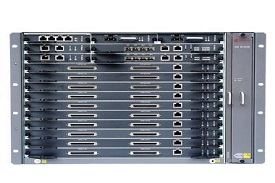 Converged Multiservice Application Access Equipment |
GCS | B | TEC is mandatory for all classes of Combined Multi-Service Application Access Devices to be sold in India. TEC-certified Converged Multi-Service Application Access Devices are now available with many features. TEC Certification for Converged Multi-Service Application Access Equipment, Scheme: GCS and Group: C TEC Certification for Converged Multi-Service Application Access Equipment coverage variants - C-MSAAE service application access equipment and products use work efficiency is high. Also guarantees that the data stored on the device is secure and there is no risk of data leakage. So if you are planning to purchase a Converged Multiservice Application Access Appliance for your business, make sure it is TEC certified.This will help you get the best product and also keep your data safe.Brand Liaison is fully backed by TEC certification. Brand Contact Information and procedures to assist in obtaining TEC certification. |
| 63 | 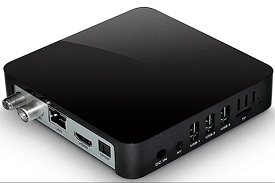 Hybrid Set Top Box |
GCS | B | TEC is mandatory for all categories of hybrid set-top boxes to be sold in India. TEC certified hybrid set-top boxes are now available with many features. Hybrid Set Top Box TEC Certification, Scheme: GCS and Group: CHybrid Set Top Box TEC Certification Covers Variants - Hybrid Set Top Box. TEC Certification indicates your Hybrid box is good to buy and works well.Also guarantees that the data stored on the device is secure and there is no risk of data leakage. So if you are going to buy a hybrid box for your business, make sure it is TEC certified. This will help you get the best product and also keep your data safe. Brand Liaison is fully backed by TEC certification. Brand Contact Information and procedures to assist in obtaining TEC certification. |
| 64 | 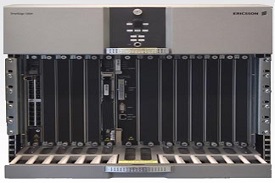 Mobile Management Entity |
GCS | C | TEC Mobility Management Body Certification To Scheme: GCS and Group: C TEC Mobility Management Body Certification covers two different areas - MMETEEC for 2G or 3G or 4G only TEC 4 for details mobile management sites will be quality and you will study well. Also guarantees that the data stored on the device is secure and there is no risk of data leakage. So if you are planning to purchase a business management center for your business, make sure it is TEC certified.This will help you get the best product and also keep your data safe. Brand Liaison provides full support with TEC certification. Brand Contact Information and procedures to Assist in Obtaining TEC Certification. |
| 65 |  All Interfaces |
GCS | D | TEC is mandatory for all interconnects in all categories to be sold in India. All TEC-certified Interfaces are now available with many features. TEC certification for all interfaces, concept: belongs to GCS and group: CTEC certification for all interfaces covers variants – TEC Certification for all interfacesTEC Certification, to ensure all work quality interfaces.Also guarantees that the data stored on the device is secure and there is no risk of data leakage. So if you are going to buy All Connections for your business, make sure it has TEC certification. This will help you get the best product and also keep your data safe. |
| 66 | 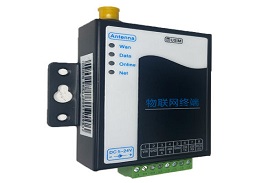 Transmission Terminal Equipment-2 |
GCS | C | Telecom Engineering Center (TEC) in India does offer a certification program for Transmission Terminal Equipment-2 (TTE-2). TEC certification ensures that telecom equipment, including TTE-2, meets the technical and performance standards specified by TEC for deployment in Indian networks. Transmission Terminal Equipment-2 (TTE-2) refers to the equipment used in the transmission of signals over telecommunications networks. It includes devices such as multiplexers, modems, Digital cross-connect systems, and other transmission equipment. The TEC certification process for TTE-2 involves evaluating the technical specifications, conducting laboratory tests, and verifying compliance with TEC's guidelines and requirements specific to this type of equipment. The certification aims to ensure the equipment's compatibility, interoperability, and adherence to the relevant technical standards in India. To obtain TEC certification for Transmission Terminal Equipment-2, manufacturers typically need to submit their products to TEC for testing and evaluation. The certification process ensures that the equipment meets the necessary quality, performance, and safety standards for deployment in Indian telecommunications networks. |
| 67 | 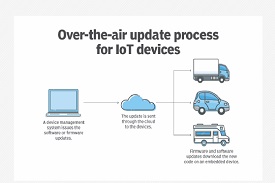 OTA and DM or FOTA |
GCS | C | TEC Certification for OTA and DM or FOTA is a mandatory requirement for telecom equipment manufacturers in India. The TEC (Telecom Engineering Centre) is a government-owned organization that is responsible for testing and certifying telecom equipment. The TEC certification process is designed to ensure that telecom equipment meets the safety and performance standards set by the Indian government. The TEC certification process for OTA and DM or FOTA is as follows:
The TEC certification process can take several months to complete. The cost of the certification process varies depending on the type of equipment and the testing required. The benefits of obtaining TEC certification for OTA and DM or FOTA include:
If you are a telecom equipment manufacturer, you should consider obtaining TEC certification for OTA and DM or FOTA. The benefits of certification can help you to increase market access, improve customer confidence, and reduce risk of liability. Here are some additional information about OTA and DM or FOTA:
OTA, DM, and FOTA are all important technologies that are used to manage and update devices. TEC certification for OTA and DM or FOTA can help to ensure that these technologies are used safely and effectively. |